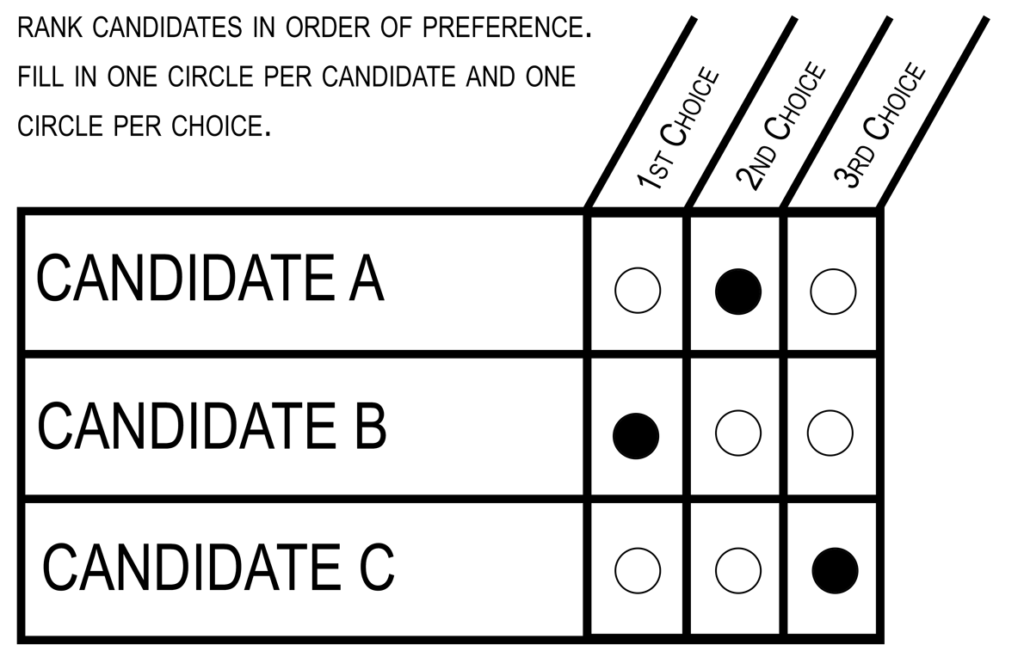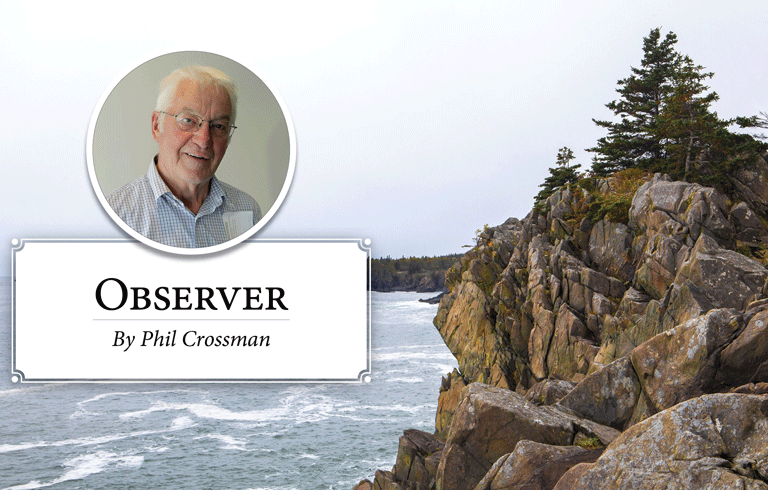By Phil Crossman
Ranked choice voting is not a sinister effort to undermine our constitution and electoral process. It is, instead, a refinement that the authors of the U.S. Constitution would have thought of themselves had they had occasion to consider contested elections on a broader scale than simply Washington vs. Adams.
But the nation was new. Democracy was new. Everything was new, and it is to their credit that they anticipated as much as they did and that their successors needed to pursue so little refinement.
But voting has been an exception on several fronts. Never mind gerrymandering for the time being.
Maine voters enacted ranked choice voting by referendum in 2016, and reaffirmed the plan in 2018 after the legislature voted and Gov. Paul LePage signed into law a delay in implementing the method.
For the upcoming Nov. 6 election, Maine will use ranked choice voting for electing a U.S. senator and a representative to Congress from the state’s two districts, but not for the gubernatorial election.
But the case can be made for extending this method to our choice of governor.
American voters feel increasingly disenfranchised. There is no better expression of that feeling, of feeling one’s vote doesn’t count, than Maine gubernatorial elections for the last half century. In fact, gubernatorial GOP nominees in Maine have failed to win a majority for nearly 50 years, the longest such streak in the nation, and only in Maine has a governor been elected twice in a row with less than 40 percent of the vote.
A plurality is more than everyone else. A majority is more than half.The 2010 gubernatorial election was won with 38 percent of the votes cast, a plurality, but not a majority.
As has been the case for nearly 50 years, no one candidate enjoyed majority support. Had ranked choice voting been an option, things would have been not just different, but more representative.
For the sake of argument, let’s say a voter preferred candidate Eliot Cutler, an independent, but of the remaining four candidates she’d have rather seen Libby Mitchell, a Democrat, than Republican LePage or the other two independent candidates, Shawn Moody and Kevin Scott. Had she had that opportunity with ranked choice voting, she’d have noted on her ballot that Cutler was her first choice, Mitchell her second, Moody third, Scott fourth and LePage fifth. Had everyone else in the state had the same opportunity, the election, as the results later demonstrated, would have gone differently and the will of the majority would have prevailed.
As it happened, 38 percent of voters wanted LePage. The second choice of most of those voters was Cutler.
Thirty-six percent voted for Cutler and the second choice of most of those probably was Mitchell. Ninteen percent wanted Mitchell and the second choice of most of those was Cutler. Four percent voted for Moody, their second choice probably was Cutler, and 2 percent were for Scott, and tnir likely second choice LePage.
Had ranked choice voting been in play this is how things would have unfolded:
There being no majority, the first round of counting would address the lowest vote getter, Scott, and would cause his votes to succumb to his voters’ second choice (LePage), and hence the tally would then stand at LePage 40 percent, Cutler 36 percent, Mitchell 19 percent, Moody 4 percent.
There still being no majority, a second round would address the next lowest vote getter, Moody, and his votes would yield to the second choice (Cutler) of Moody voters and hence: Lepage 40 pecent, Cutler now 40 percent, Mitchell 19 percent.
There still being no majority, a third round would address the 19 percent for Mitchell and her votes would surrender to her voters’ second choice (Cutler) and result in the tally being: LePage: 40 percent, Cutler 59 percent.
A majority having been reached, the process would end and the will of the people, the will of 59 percent of Maine voters would have been fulfilled. As it is, the will of 38 percent were represented by the election results.
Phil Crossman is a resident of and a business owner on Vinalhaven, as well as a regular columnist forThe Working Waterfront.





